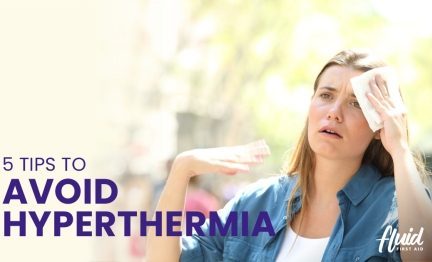The First Aid Australia News+
Get to cover! 5 Tips to avoid Heat Stroke
- January 15, 2020
- Posted by: Julian Miana
- Category: First aid
No Comments

Heat Exhaustion and Heat Stroke are very dangerous. They can be especially serious for children, seniors and pets.
So, what is Heat Stroke? And how is it different from Heat Exhaustion?
Heat Stroke and Heat Exhaustion are two related health conditions that can be very serious if not treated quickly and effectively. Both are caused by an elevation in body temperature which is normally controlled by sweating. Sweating allows a person to cool through evaporation, but once a person becomes too dehydrated to sweat, the body temperature can rise rapidly and dramatically.
Heat Exhaustion is likely to occur when a person’s body temperature rises above 37 degrees but below 40 degrees Celsius. Heat Stroke is the most serious form of heat-related illnesses, with a body temperature higher than 40 degrees Celsius.
The two heat conditions, although caused by a dramatic rise in body temperature, present very different signs and symptoms. In the case of Heat Exhaustion signs and symptoms include:
- Headache
- Body temperature less than 40 degrees Celsius
- Muscle cramps
- Exhaustion and general weakness
- Nausea and/or vomiting
- Dizzy spells
- Pale, cool, clammy skin at first, becoming flushed and red later
- A rapid, weak pulse
Symptoms for Heat Stroke include:
- Typically no longer sweating
- Red, hot and dry skin
- A body temperature over 40°C
- A rapid, strong pulse.
- Rapid, noisy breathing
- Irrational or aggressive behavior
- Deterioration of the conscious state
To avoid a Heat Stroke you must
- Drink plenty of water or other non-alcoholic fluids even if you’re not thirsty. Avoid drinking extremely cold liquids as they can cause stomach cramps
- Stay cool and keep air circulating around you. Draw your blinds or curtains and use a fan or air conditioning if possible
- Eat smaller meals more often and cold meals such as salads
- Wear light-colored, loose-fitting clothing made from natural fibers like cotton and linen
- Keep yourself cool by using wet towels, putting your feet in cold water and taking cool (not cold) showers
If you must be out in the heat:
- Limit outdoor activity to the coolest part of the day
- Protect yourself from the sun and ‘slip, slop, slap’ when outside by covering exposed skin, using sunscreen and wearing a hat
- ‘Seek’ shade and ‘slide’ on some sunglasses
- Rest regularly in the shade and drink fluids frequently
How to attend to Heat Stroke
If someone you are with develops Heat Stroke:
And that person is Conscious:
- Lie the patient down in a cool shaded area
- Give the patient sips of a solution that is ½ teaspoon of salt in 500 ml of water
- Do NOT give them salt tablets
- If the patient has experienced severe vomiting or diarrhea seek medical assistance. Call an Ambulance or ask a bystander to call 000
- Assist the patient to stretch any camped muscles whilst sponging them with cold water
And that person is Unconscious:
- Clear the airway
- Follow the Basic Life Support
- Cool using ice-packs under the armpits groin and back of the neck. If the ice is unavailable pour water over the patient and wrap him in wet sheets or towels
- Fan them with whatever is available: electric fan, towel, newspaper
- Call or seek medical assistance
It’s good to remember that
- While waiting for emergency medical help, get the person to a cool shady area and lay them down
- Remove excess clothing and wet their skin with water or wrap in wet cloths, fanning continuously
- Do not give the person fluids to drink
- Position an unconscious person on their side and clear their airway
- Monitor their body temperature where possible and continue cooling efforts until the body temperature drops below 38 °C
- Wait for the ambulance to transport the person to a hospital, where more intensive cooling and support can be given
- If medical attention is delayed, seek further instructions from ambulance or hospital emergency staff
Summer in Australia can be a dangerous time. Heat Stroke is not the only thing that can happen. Sunburn and Skin Cancer require caution too. Take care of yourself and your loved ones.
Leave a Reply Cancel reply
You must be logged in to post a comment.